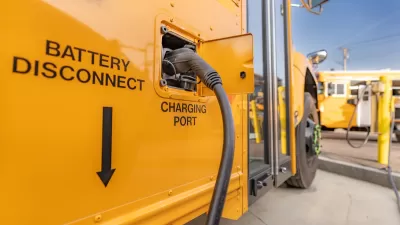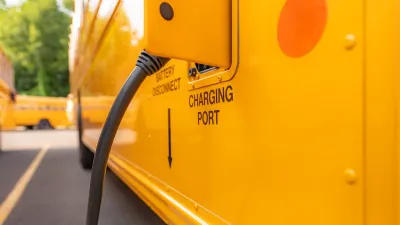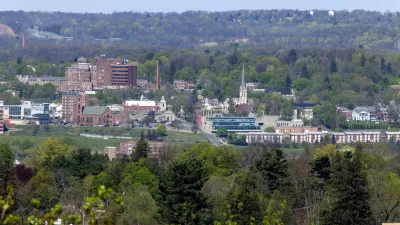California has awarded $500 million to fund 1,000 zero-emission school buses and chargers for educational agencies as part of its effort to reduce pollution, improve student health, and accelerate the transition to clean transportation.

California has awarded $500 million in funding to help school districts and educational agencies purchase 1,000 zero-emission school buses and install associated charging infrastructure, reinforcing the state's national leadership in clean school transportation. Administered by nonprofit CALSTART in partnership with the California Air Resources Board (CARB) and the California Energy Commission (CEC), this initiative targets the communities most impacted by air pollution. Priority was given to rural and underserved districts, with 98 percent of awarded agencies serving low-income or disadvantaged communities. Each grant includes up to $375,000 per bus and up to $95,000 for charging equipment, with the requirement that an old diesel-powered bus be scrapped for every new bus received.
This investment is part of the state’s broader climate and public health strategy, with zero-emission school buses playing a key role in reducing greenhouse gas emissions and protecting children from the harmful effects of diesel exhaust. Studies show that despite accounting for less than 10 percent of a child’s day, school bus commutes can contribute up to 33 percent of their daily exposure to air pollutants. The new buses funded through this round of grants are expected to reduce 18,000 metric tons of greenhouse gases annually — equivalent to removing 4,000 cars from the road each year — and will help California meet its goal of 100 percent zero-emission school bus purchases by 2035 (2045 for rural areas).
This latest round of funding builds on over $1.3 billion already invested by the state, resulting in more than 2,300 zero-emission buses funded and over 1,100 already in operation — the majority located in pollution-burdened communities. The transition not only supports California’s goal of achieving carbon neutrality by 2045 but also demonstrates a scalable model for clean, equitable, and community-focused infrastructure investments across the country.
FULL STORY: California awards $500 million in funding for 1,000 zero-emission school buses

Rethinking Redlining
For decades we have blamed 100-year-old maps for the patterns of spatial racial inequity that persist in American cities today. An esteemed researcher says: we’ve got it all wrong.

Planetizen Federal Action Tracker
A weekly monitor of how Trump’s orders and actions are impacting planners and planning in America.

Montreal Mall to Become 6,000 Housing Units
Place Versailles will be transformed into a mixed-use complex over the next 25 years.

Santa Clara County Dedicates Over $28M to Affordable Housing
The county is funding over 600 new affordable housing units via revenue from a 2016 bond measure.

Why a Failed ‘Smart City’ Is Still Relevant
A Google-backed proposal to turn an underused section of Toronto waterfront into a tech hub holds relevant lessons about privacy and data.

When Sears Pioneered Modular Housing
Kit homes sold in catalogs like Sears and Montgomery Ward made homeownership affordable for midcentury Americans.
Urban Design for Planners 1: Software Tools
This six-course series explores essential urban design concepts using open source software and equips planners with the tools they need to participate fully in the urban design process.
Planning for Universal Design
Learn the tools for implementing Universal Design in planning regulations.
City of Camden Redevelopment Agency
City of Astoria
Transportation Research & Education Center (TREC) at Portland State University
Regional Transportation Commission of Southern Nevada
Toledo-Lucas County Plan Commissions





























